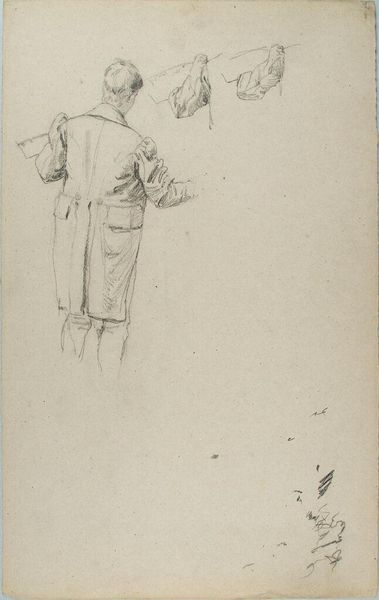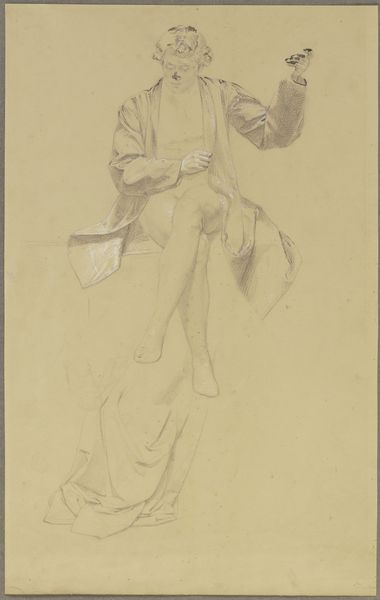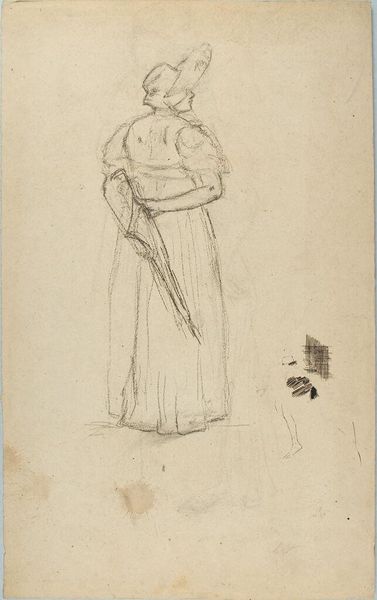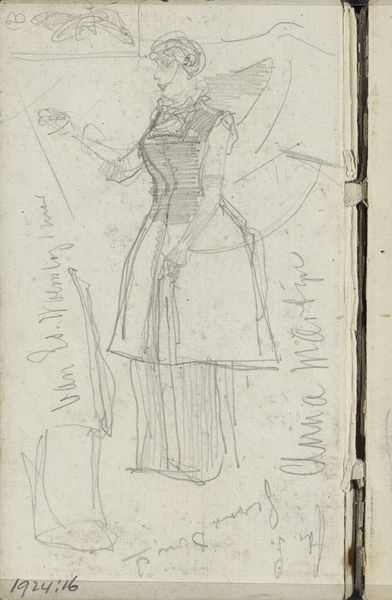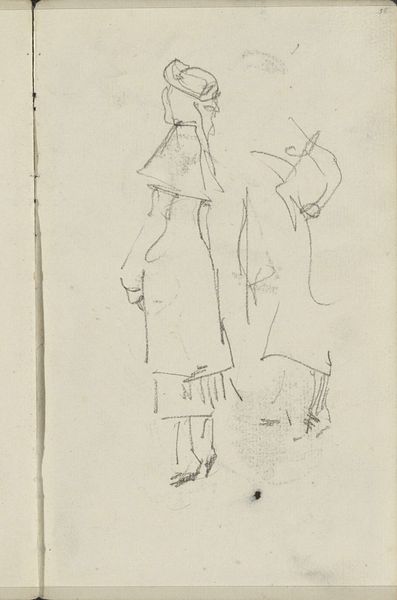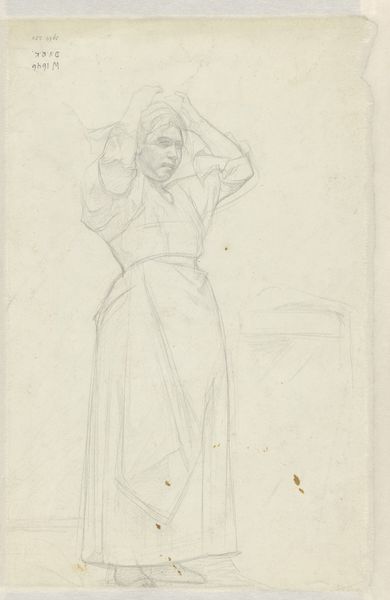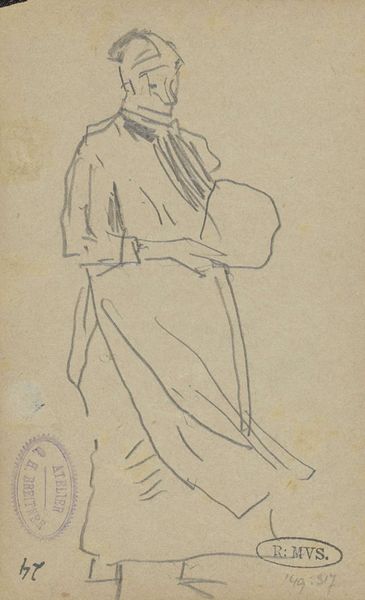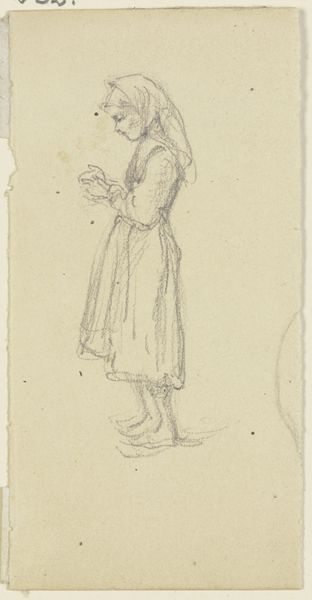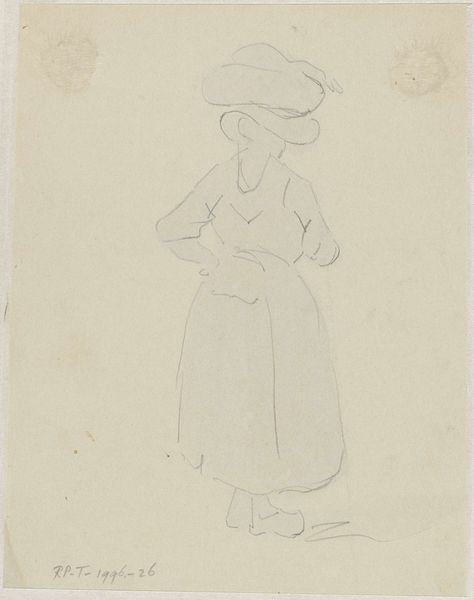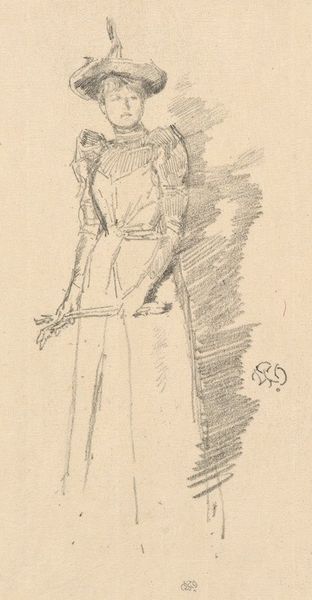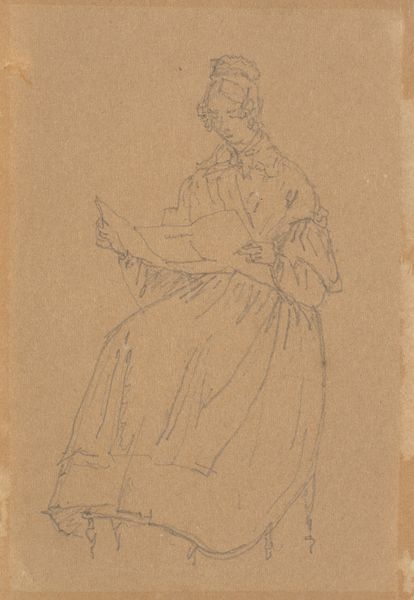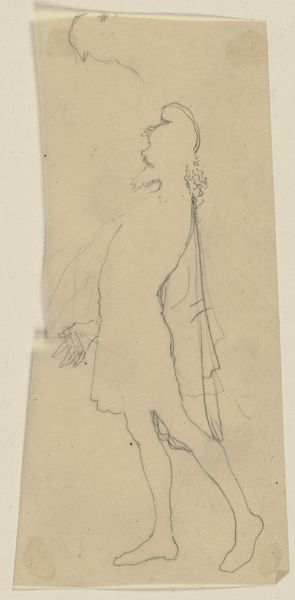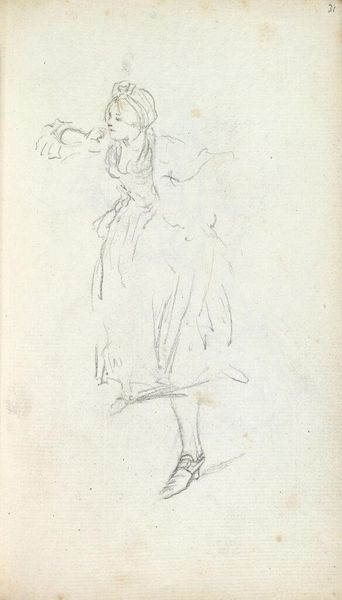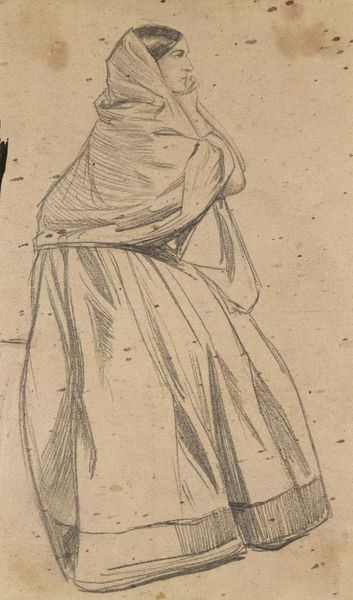
Figuurstudie van een vrouw met een mand op het hoofd 1841 - 1857
0:00
0:00
johandanielkoelman
Rijksmuseum
drawing, paper, pencil
#
portrait
#
drawing
#
comic strip sketch
#
imaginative character sketch
#
quirky sketch
#
figuration
#
paper
#
personal sketchbook
#
idea generation sketch
#
sketchwork
#
pencil
#
sketchbook drawing
#
storyboard and sketchbook work
#
sketchbook art
#
realism
#
initial sketch
Dimensions: height 79 mm, width 124 mm
Copyright: Rijks Museum: Open Domain
Curator: Let's discuss this pencil drawing titled "Figuurstudie van een vrouw met een mand op het hoofd" by Johan Daniël Koelman, made sometime between 1841 and 1857. Editor: Well, my immediate impression is one of precariousness. The rapid lines and lack of detail give it an unfinished, almost frantic feel. I'm drawn to the sense of labour suggested by the woman and the weight on her head. Curator: Exactly! It’s fascinating to consider how images of laboring figures were circulating then. Artists began showing ordinary people engaged in daily tasks, signaling shifting social awareness. This sketch might have been preparatory, but it also reflects a burgeoning interest in representing everyday life within the art world. Editor: It definitely makes me think about the economics of artmaking at that time, too. Pencil drawings on paper like this are relatively inexpensive, making art more accessible both for the artist to produce and, potentially, for a wider audience to acquire. Who was this art for, and what labor did its creation entail? Curator: Good question! While it's housed at the Rijksmuseum now, back then this study would likely have been kept within the artist's immediate circle or possibly used for teaching purposes. Koelman seems to have used it to practice capturing a fleeting moment and pose. We should examine the influence academic drawing had on artworks depicting workers. Editor: Right, because it's interesting to consider how the artist perceived their role versus the role of the woman depicted. Whose work is being valued here and how is the piece a study not only in form but also in social structure. Curator: This piece gives us insight into how representations of ordinary people carrying burdens evolved within a structured artistic practice, especially when it comes to ideas about labor and social class. Editor: Indeed, and considering it materially lets us think critically about the who, how and what of its production.
Comments
No comments
Be the first to comment and join the conversation on the ultimate creative platform.
